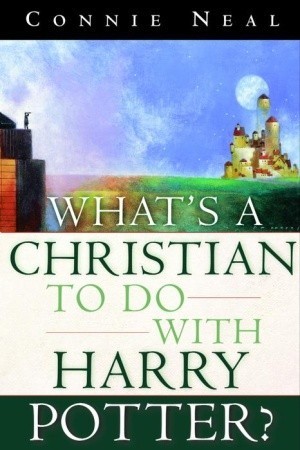What do you think?
Rate this book


210 pages, Paperback
First published May 15, 2001
There certainly are times when Harry and his friends lie, cheat, deceive, and break rules for no good reason. … In these cases, there is no justification for wrongdoing. Surely we can't use them as good role models when they are clearly doing wrong for wrong reasons to accomplish selfish aims. … When they do wrong for no good reason, Raleigh make sure they get caught, pay consequences, and are disciplined or instructed.
If one is looking for a simple message of "don't break the rules!" forget the Harry Potter books. But if one is looking for deeper lessons in moral decision making based on principles and a growing discernment of good and evil, these books provide a rare opportunity for such instruction—in keeping with the spirit of Judeo-Christian ethics.Basically, Neal says that the good characters are pardoned when they do the wrong things for the right reasons, but they suffer consequences when they do the wrong things for the wrong reasons, and that fits Biblical ethics, she claims. For support, she recounts the time Jesus argued with the Pharisees who said His disciples were unlawfully picking grain on the Sabbath (Matt 12:1-8). Neal says that this was unlawful, but Jesus was pointing out how principles supersede rules. However, picking grain on the Sabbath wasn't against God's law, it was only against the Pharisees' law. Neal says Jesus used the example of David lying to the priest to support His case, but actually, Jesus didn't condone David's lie.
I ask you to prayerfully consider the possibility that we might harness the cultural energy created by Harry Potter and convert it into a useful form that enlighten our kids to the dangers of real occult practices in our own world, while also teaching them valuable moral lessons. Not all Christians will choose to do this (and that's okay), but I'll show you how this may be a God-approved option for you.Mad About Harry!
The combination of the author's disbelief, kids' tendency to act out what they encounter in engaging fantasy worlds, and the Bible's warnings forms a triangle of real danger for real kids—even though no one intended it.Harry Potter and the Judeo-Christian Ethic
Parents, Never Offer Your Children As a Human Sacrifice
I'm sure kids are glad God put that one in there! Some people actually have given their children as sacrifices to demons or idols. They would kill their children or put them in the arms of an idol called Baal and burn them to death! Remember that the spirits behind the activities on the rest of this list are just as murderous. That's why God warns us --- for our own protection!